Facebook Touts Bans While Taking Hate Groups’ Cash
The social media giant publicly claims to be against white nationalist groups but collects advertising dollars from them in private.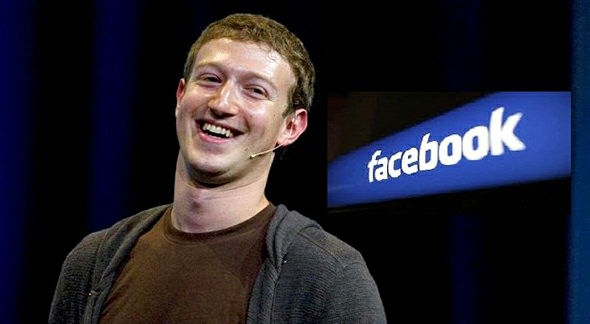 Facebook founder and CEO Mark Zuckerberg. (tua ulamac / Flickr
Facebook founder and CEO Mark Zuckerberg. (tua ulamac / Flickr
Facebook has made a point of announcing anti-hate speech policies that include the blocking of white nationalist posts and outright bans of people like Alex Jones and Louis Farrakhan for their hateful content, However, the social media giant has taken millions in advertising fees from hate groups and their leaders, according to Sludge’s Alex Kotch, who reviewed Facebook advertising data.
Kotch explains that Facebook “hosts and profits from pages, some verified, of numerous organizations identified as hate groups by the Southern Poverty Law Center [SPLC], a nonpartisan nonprofit that has been tracking and reporting on extremism since the 1970s.”
Per Sludge:
From May 2018, when Facebook began publishing its archive of political and social advertisements, to September 17, 2019, at least 38 hate groups and hate figures, or their political campaigns, paid Facebook nearly $1.6 million to run 4,921 sponsored ads. Some ads call undocumented immigration an “invasion.” Others claim that LGBTQ people are “evil.”
Among the groups that Sludge found had paid for Facebook ads include the anti-immigrant groups Federation for American Immigration Reform (FAIR, who spent $910,000) and Californians for Population Stabilization ($20,000), the Islamophobic Clarion Project ($55,000) and at least three anti-LGBTQ groups: Alliance Defending Freedom ($392,000), the Family Research Council ($107,000 total, including ads specifically for their president) and Illinois Family Institute ($33,000).
Examples of statements include “100% OF ILLEGAL ALIENS ARE CRIMINALS,” posted by Americans for Legal Immigration PAC (ALYPAC). Sometimes the post themselves aren’t specifically racist, but the groups posting them are, as with the Proud Boys, whose founder, Gavin McInnes, has made a number of hateful comments, including, “Muslims have a problem with inbreeding,” during an 2018 speech.
“It reaches a lot of people with some very toxic ideologies,” Keegan Hankes, interim research director of SPLC’s Intelligence Project, explained to Sludge. “Obviously, that’s incredibly worrisome, if not a little unsurprising given Facebook’s track record specifically around these ideologies.” Keegan Hankes,
Facebook has been struggling with how to address hate speech for years, and especially so since the 2016 election. In March, when a shooter in Christchurch, New Zealand, wanted to broadcast his horrific acts, he did so on Facebook. While it was watched 4,000 times on Facebook itself, “it spread rapidly across the internet and was reposted millions of times,” extending its reach widely, as The New York Times pointed out.
The shooter’s plans for the El Paso, Texas, shooting were also mentioned on the site. In Sri Lanka and Myanmar, Facebook posts contributed to sectarian, mostly anti-Muslim violence, so much so that Sri Lanka banned the site, preventing citizens from accessing it. As Emily Stewart wrote in Recode in April, the company “is seemingly endlessly behind the curve when it comes to monitoring the content on its platform.”
It took multiple deaths in New Zealand, the United States, Sri Lanka and Myanmar for Facebook to announce the ban on white nationalism content in a post on the company’s newsroom. They did so, the post explained, “because [hate speech posts] creates an environment of intimidation and exclusion and in some cases may promote real-world violence.”
In 2018, Vice’s Motherboard obtained leaked training manuals for Facebook’s content moderators, which stated that while Facebook didn’t support “white supremacy,” the company does allow “praise, support and representation” of white nationalism and white separation “as an ideology,” according to one of the slides obtained by Motherboard. Facebook’s reasoning reportedly was that the latter “doesn’t seem to be always associated with racism (at least not explicitly).”
That explanation for not taking action on white nationalism is reflective of what the SPLC’s Hankes told Sludge about who the company is willing to go after, and who it is scared of: “Facebook is much more willing to take action against these toxic ideologies when it’s politically expedient”—as in when it will not result in criticism from mainstream conservatives, he explained, adding, “And these are the exact ideologies that have a lot of traction in mainstream conservatism right now.”
In response to Sludge’s reporting, a Facebook spokesperson who requested anonymity said, “We are reviewing the content [Sludge] flagged and taking action against any posts or ads that violate our policies.”
Read Sludge’s full report here.
Your support matters…Independent journalism is under threat and overshadowed by heavily funded mainstream media.
You can help level the playing field. Become a member.
Your tax-deductible contribution keeps us digging beneath the headlines to give you thought-provoking, investigative reporting and analysis that unearths what's really happening- without compromise.
Give today to support our courageous, independent journalists.
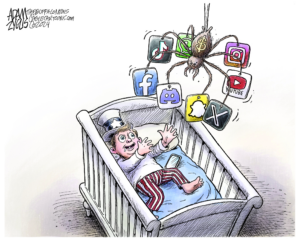


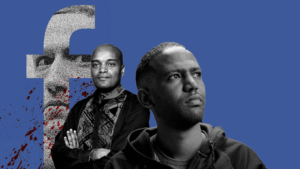
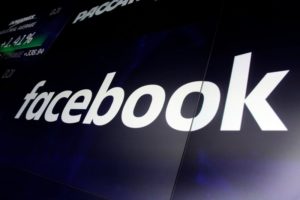
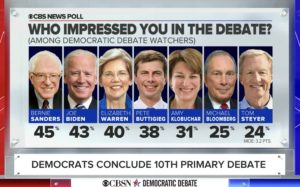
You need to be a supporter to comment.
There are currently no responses to this article.
Be the first to respond.